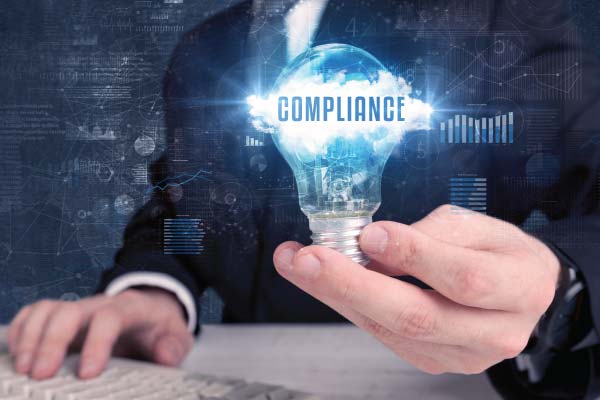Credit Risk Analysis in the Face of Supply Chain Disruptions
28-May-24
Dun & Bradstreet, the leading global provider of B2B data, insights and AI-driven platforms, helps organizations around the world grow and thrive. Dun & Bradstreet’s Data Cloud, which comprises of 455M+ records, fuels solutions and delivers insights that empower customers to grow revenue, increase margins, build stronger relationships, and help stay compliant – even in changing times.
The old adage of ‘Rules are meant to be broken’ does not stand true for company compliance. Today, safeguarding our business and reputation demands an unprecedented focus on corporate compliance.
As technology helps organisations carry out high-value transactions globally, the likelihood of financial theft, money laundering and covert terrorism funding has increased. Long-haul scams and frauds make it almost impossible to trace the culprits after a fraud has been committed.
Forward-thinking companies are now laying down stringent corporate compliance protocols that can help them anticipate loopholes. This is used to identify and prevent unethical practices and fraud. Compliance and risk management programs for financial security are also prevalent in every established organisation and financial institution.
International laws are in place to combat money laundering, terrorism financing, bribery, and corruption. These laws include AML/CFT regulations, KYC requirements, CDD procedures, and the Dutch WWFT Act.
Company compliance is necessary for the following reasons:

UBO and KYC checks have been made mandatory by national and international laws. These checks apply to suppliers, vendors, service providers, partners, and customers, in a process that needs thorough and detailed scrutiny. A corporate compliance management tool helps make the process effective.
Most tools enable companies to set up and streamline their compliance processes. They also help track changes and provide real-time monitoring to make sure that compliance is maintained with the latest updated regulations. Automating important tasks increases the effectiveness of the process.
The process of company compliance includes some standard steps:
The Ultimate Beneficial Owner or UBO refers to an individual or organisation that owns and controls another organisation while benefiting from financial transactions.
UBO legislation is designed to provide banks and corporations with clear insights into their business counterparts. The difficulty in tracing the flow of money increases when UBOs remain unknown or concealed. It''s estimated that illegally laundered money annually represents 2-5% of the global GDP, highlighting the significance of this legislation.
Thus arises a need to implement robust measures such as client due diligence and assessments of suppliers, vendors, and customers that can help uncover hidden risks and protect your organisation from potential legal and reputational damage.
Although the intent to prevent fraud and financial crimes is in place, there are several challenges in ensuring compliance risk management and UBO checks:
In today''s global business landscape, the importance of Ultimate Beneficial Owner (UBO) information cannot be overstated. With the rise of sophisticated financial crimes, including money laundering and terrorism financing, it is imperative for companies to prioritize corporate compliance. Compliance not only mitigates risks but also safeguards reputation and fosters good governance. Through stringent protocols and tools for UBO and KYC checks, businesses can enforce compliance effectively. However, challenges such as evolving regulations and manual oversight persist, emphasizing the need for continuous adaptation and vigilance in compliance risk management.

D&B Onboard
Automate your corporate compliance with D&B Onboard for efficient compliance risk assessment. Get in touch for effective company compliance management.

Supply Management Solutions
Activate data and analytics to control supply chain risk and avoid the consequences of disruption. Learn more about our supply chain solutions.

Compliance
Assess, investigate and monitor third parties for potential risk. Learn more about our compliance solutions.

Credibility Reports
Gain your stakeholders confidence for increased business opportunities and establish your brand credibility.

D-U-N-S® RegisteredTM Solutions
Get your business noticed in the global marketplace with the global seal of credibility